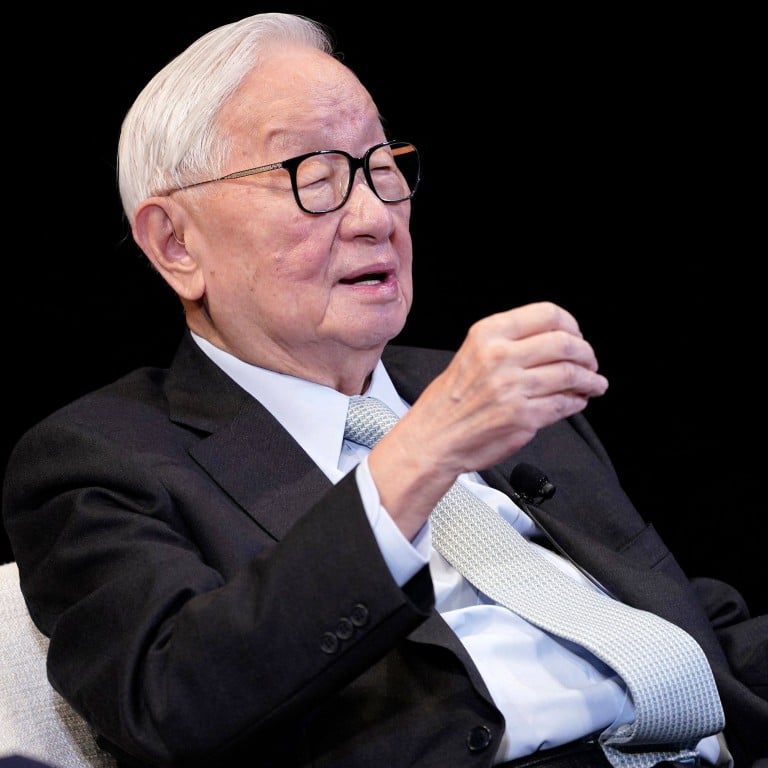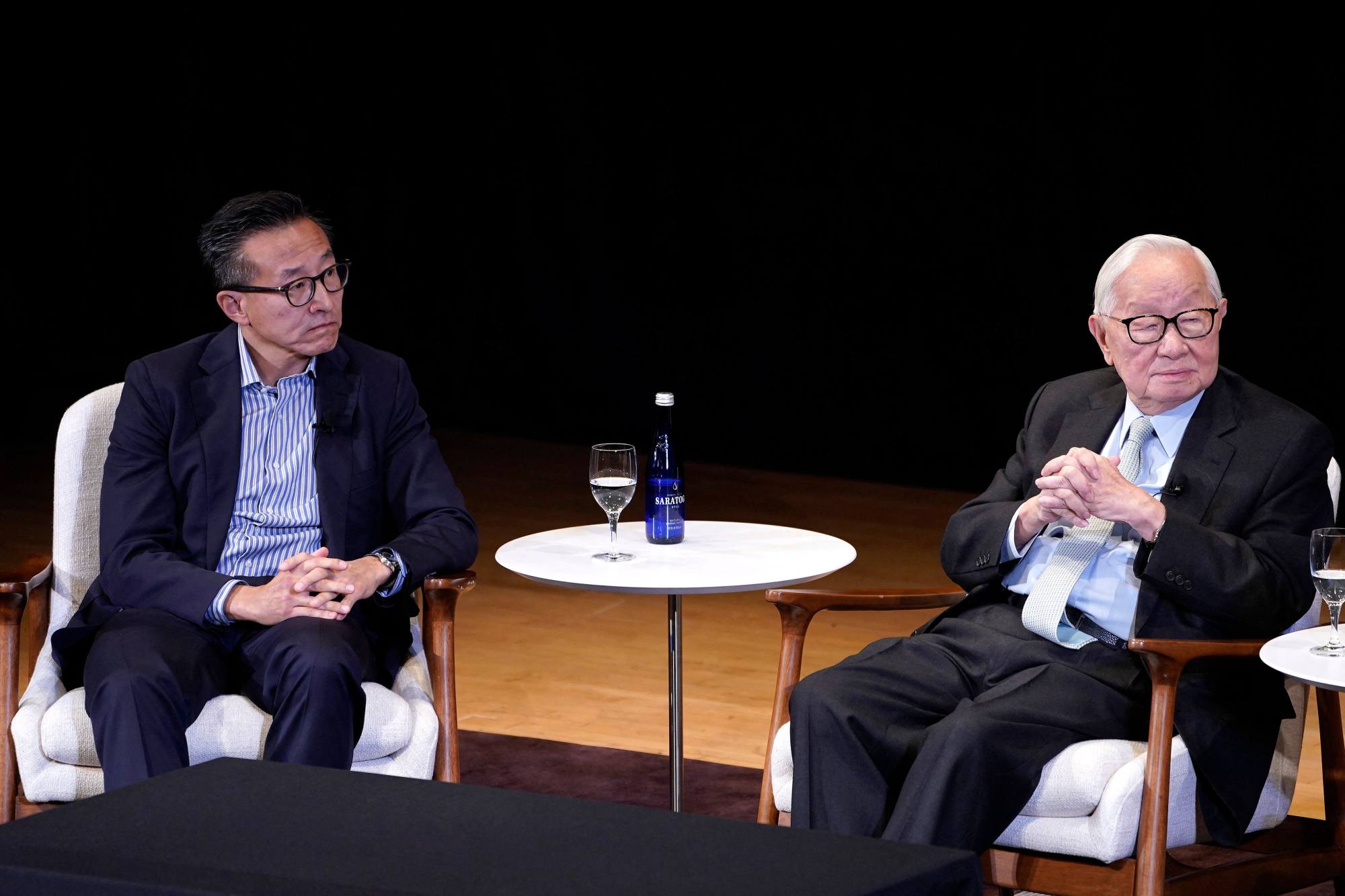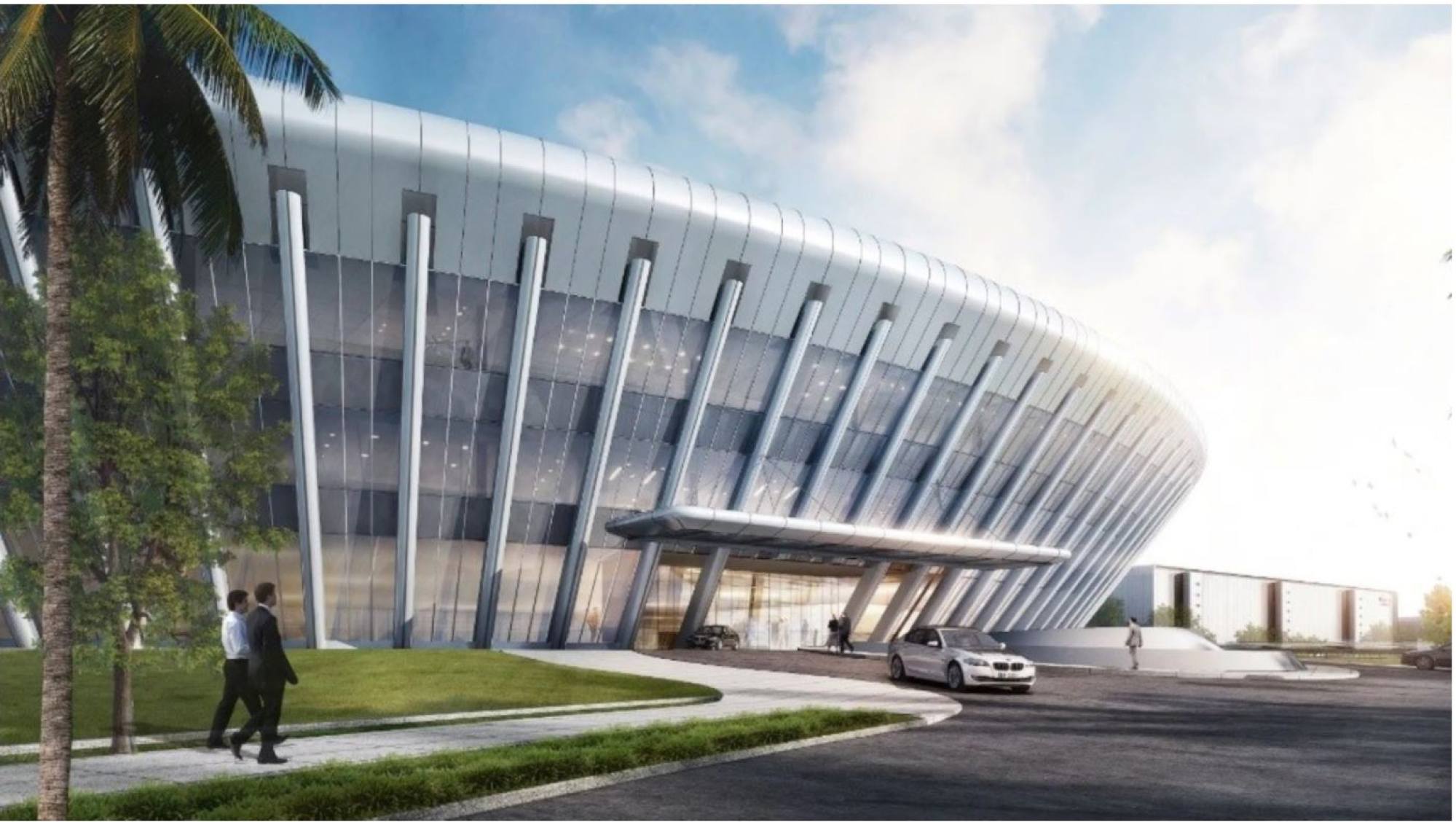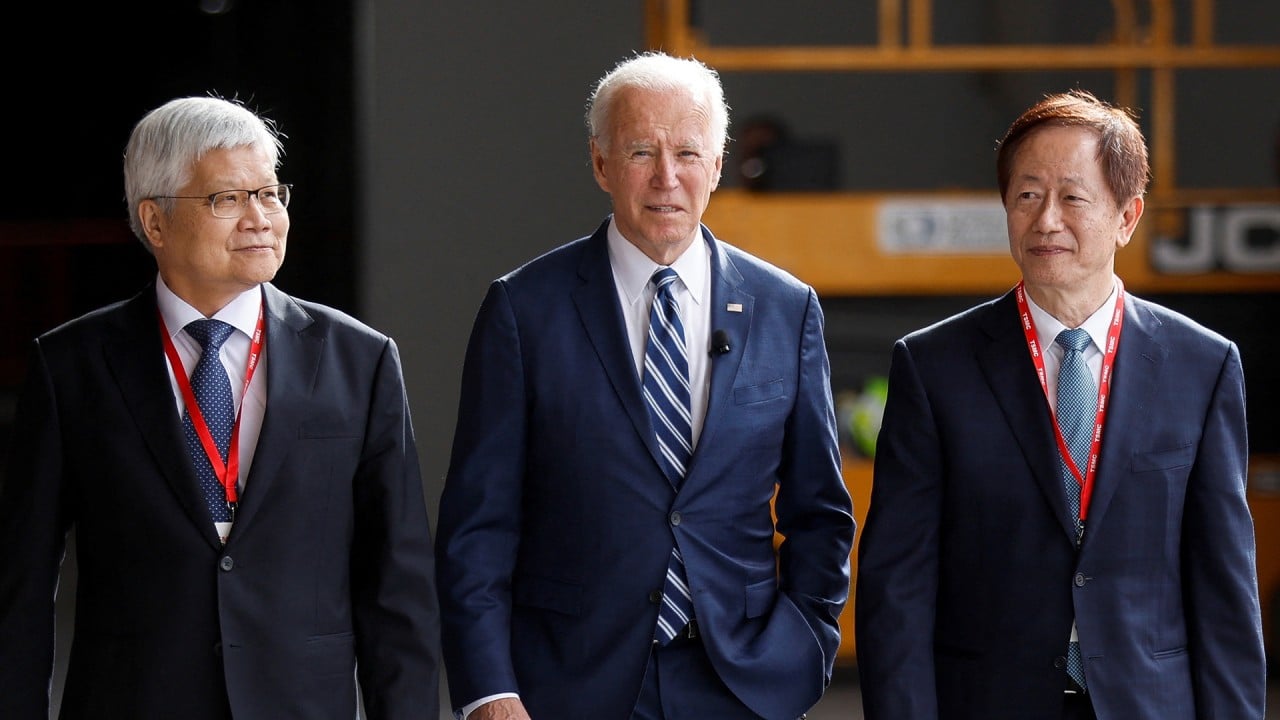
TSMC founder Morris Chang’s major worry: US-China decoupling
- A split between the world’s two biggest economies would not only harm China, it would ‘slow down everybody’, says Chang
- The giant Taiwanese chip manufacturer is building two factories in Arizona, the first of which is scheduled to be fully operational next year
The one thing that comes closest to keeping Morris Chang, the tech king of Taiwan, up at night is decoupling of the world’s two largest economies, the United States and China.
“It looks like countries are mad at each other, and that worries me,” Chang, the 91-year-old retired founder of the Taiwan Semiconductor Manufacturing Company, said on Thursday at an Asia Society event in New York.
TSMC, the world’s largest producer of advance semiconductors, is Asia’s most valuable company with a market cap of over US$400 billion.
In discussing decoupling, Chang cited the book Destined for War: Can America and China Escape Thucydides’s Trap? by Harvard professor Graham Allison.
“It was a situation where the existing power, which is the United States, is confronting the emerging power, which is China,” Chang said, noting that Allison’s book gave 18 examples where an existing power confronts an emerging power, and war resulted in 12 of those 18 occasions.
“My hope, our hope, is that it doesn’t lead into anything even more serious,” he said.
Chang was joined at the event by Joe Tsai, a co-founder of the Alibaba Group, which owns the South China Morning Post.
Asked what keeps him up at night, Tsai said the two “hot wars”, Ukraine-Russia and Israel-Hamas, worried him. Calling the current world “very dangerous and unpredictable,” he said he hoped that “the two largest economies in the world don’t somehow accidentally or by purpose get into a hot conflict”.
How rising industrial policy gave Arizona the economic heft to land TSMC deal
China has been flexing its diplomatic and military muscle against Taiwan, a self-governed island that Beijing claims as an “integral part” of its sovereign territory. Chinese President Xi Jinping has pledged to reunite Taiwan with the mainland, by force if necessary. The tensions have raised concerns about the fate of Taiwan’s chip fabricators, which produce some of the world’s most advanced semiconductors.
Washington, which adheres to the one-China policy but remains legally bound to defend Taiwan in case of an invasion, has stepped up efforts to move semiconductor supply chains away from the island.
US President Joe Biden’s “onshoring” and “friendshoring” measures, including billions of dollars in federal subsidies, to increase chip production in the US and its allied countries threaten TSMC’s dominance in the business by increasing competition.

Acknowledging that the “immediate purpose” of decoupling was to “slow China down”, Chang warned that it would “slow down everybody”.
“Ultimately I think it will be harmful to everybody,” he said.
Earlier this month, Chang said that in the semiconductor space, “there is no globalisation anymore; there is no free trade anymore”.
“The priority is national security only,” he said in Taiwan on October 14. “I see this global competition going on. Our competitors may take advantage of this geopolitical trend and want to beat us.”
Even as it keeps its most cutting-edge technology in Taiwan, TSMC has been setting up facilities around the world. The chip giant is a major supplier to tech firms including Apple.
US, allies gallop ahead in advanced chips, leaving China foundries stuck behind
Last year, it announced a second chip manufacturing plant in Arizona. It is expected to start churning out 3 nanometre chips – the most advanced currently in production – by 2026.
But its first plant in Arizona has been marred by delays over shortage of skilled workforce and a rift with local unions over bringing in Taiwanese workers at what union leaders claim “lower wages”.
The US$40 billion project is scheduled to be fully operational sometime next year.
Chang said “not very many geniuses” were required for a country to become a successful manufacturing hub, but “a lot of people who are disciplined” and possess skills in repairing and maintenance are necessary.

He noted that such skilled workers, mostly high school graduates, don’t go to college and instead attend trade schools in Taiwan. “They learn specific skills which allow them really to get pretty good jobs after they graduate. That’s one advantage that the Taiwan education system does have,” he said.
Tsai praised China’s vocational schools, where middle school graduates learn professional and technical skills, and predicted that despite its recent economic woes the country would continue to be a manufacturing powerhouse but “maybe not to the extent of making very high-end chips”.
Tsai, a Taiwanese-Canadian, emphasised that China, along with the rest of Asia, remained a “very dynamic place” for investors with “a ton of industrious people hard-working people working on new technologies”.
“You’re looking at about 800 million people that are in the labour force and 200 [million] of them are … highly educated, highly skilled labourers,” he said, pointing to China’s demographic advantage.


